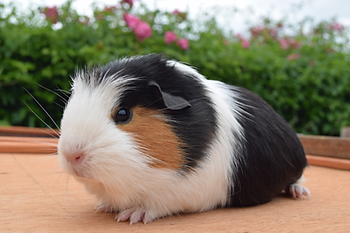Let's Talk About... Hatching Eggs in Schools
- Furlock Holmes
- May 19, 2022
- 2 min read
Like other animal welfare charities, we are all about education and helping children understand the lifecycle and care of animals. We understand that schools want to provide the best experiences for their pupils and to make their lessons interactive and engaging. However, despite many warnings from the RSPCA and other leading animal welfare organisations, some schools are still using live chicks and ducklings in the classroom to educate their students. It seems that many teachers may not realise the ethical implications in carrying out this project.
Furlock Holmes gets multiple calls every year to take in the chicks/ducklings after hatching and stands very strongly against the hatching of eggs in schools. It needs to stop. The welfare and ethical issues related to hatching eggs in schools very much outweigh any educational benefits gained by the students and it is also teaching children that animals are disposable.
Welfare
The chicks and ducklings we have seen hatched in schools have been left in dirty bedding with very little food, certainly not getting the full care they need. Schools do not have the necessary expertise to deal with issues in hatching, and so this often results in injury or death. The chicks and ducklings are either left in the school over evenings and weekends, which is a form of neglect, or sent home with different people, with is simply unsettling for any animal.
What happens afterwards?
Hatching in schools often comes with no planning of what will happen to the chicks or ducklings afterwards. Many of the organisations offering these "kits" will take back the birds to slaughter. Not to mention, even if homes are lined up for the hens, unecessarily bringing unwanted cockerels into the world for the entertainment of children is cruel and, more often than not, results in slaughter.
The wrong lesson
A lot of the work and campaigning we do, is to teach people that pets and animals are not disposable. They are not here for our entertainment, to be thrown away as soon as we get bored and move on. Our efforts to spread the word are now battling teachers who are giving students this experience of getting rid of the chicks and ducklings once they are done with them.
How can you help?
If you know of a local school thinking about hatching eggs in the classroom, get in touch with them ASAP with a link to this blog post. Share with them the concerns we have raised and send them links to the RSPCA guidance. Help us end this unnecessary suffering of chicks and ducklings!








Comments